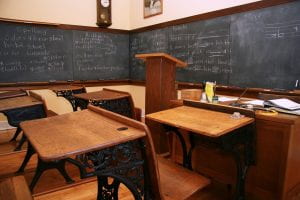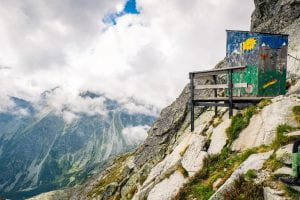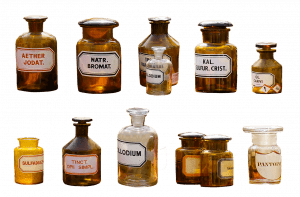Are you getting hot in your research and need a FAN? This type of FAN wont get you any cooler, in fact you will find yourself working more on those BSO (Bright Shiny Objects)
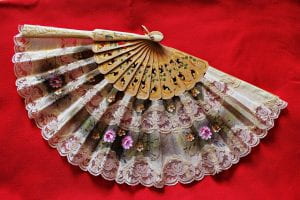
Tonight’s twitterchat is all about FANs – friends, associates and neighbours
- Did your immigrant ancestor emigrate with cousins, friends, or neighbours? Did FANs already in Australia sponsor family members?
- Did your ancestors settle near FANs after immigration? Have you found widowed or single FANs living with ancestors, or vice versa?
- Have you made any research discoveries by using FANs either through DNA or otherwise? How do you use FANs or extended family to solve “brick walls”?
- Do you use social media to identify FANS of family members? What other records and sources have you found useful?
Great places to find FANs
Helen: Inquests, wills, probate records can uncover helpful FAN (friends, associates, neighbours) networks – and those networks can reveal much
Jane: There is quite a bit of information coming together at ancestorian.com now … good place for sharing for everyone (and especially for those people who want an alternative to Fb)
Pauleen: I have found blogging to be a wonderful tool to discovering FANs as they respond to the stories I’ve written, sometimes many years later. I use FB groups for places, and also have a cousin/family group and one for Dorfprozelten emigrants’ families
Tara: Someone mentioned “Kerrytown” earlier. Was searching for something unrelated during lunch and found this section of a book on placenames of South Australia. Might be useful for others published.collections.slsa.sa.gov.au/placenamesofso…
Tara: worth remembering that some Rootsireland county transcriptions will allow you to search a common surname with the name of witness/sponsor. Not Offaly though, which is a pain
Tara: One excellent source for those of you with Irish heritage is @IrelandXO – join the parish page, or county page if parish unknown and get help from locals. Also multiple FB pages
Sue: Need to make sure you use tags and categories in blog posts so more chance of FANs finding it , reading it, and getting in contact with you.
Pauleen: When people know your interests they will share information with you. An elderly man, now not well, has shared so much info and oral history he collected about Murphys Creek Qld
ANZ: Don’t forget to look in your own “archives”: photos, autograph books (more recent), address books (grandmother’s, mother’s, aunt’s, cousins’). How about membership badges from clubs, societies or church groups? School photos?
Pauleen: Establish your networks so people know your research interests eg I was given a house blessing picture for the original Kunkel house. My FANs always alert me when they see the Kunkel name. The current owner of the home shared a heritage survey
SOPS: Quite a few one-placers have found that Facebook pages or groups certainly work well for Places / #OnePlaceStudies. They are great for sharing and receiving information, photos etc of residents and their wider families, and of the Places themselves.
Fran: I regularly check Archway for hints and also the non newspaper section of @PapersPastNZ.
Tara: Found one by accidentally seeing a tweet last week. Grandson of a man whose ancestry I’m researching!
Jill: I have made many connections with FANs through having my family tree online on my own site geniaus.net, and in online trees at the Big 3 pay sites and @FamilySearch #ANZAncestryTime
ANZ: There are so many options for learning more about your ancestors’ FAN’s: oral history, immigration documents, newspaper stories, electoral rolls and PO directories, maps to see who their neighbours were, church witnesses.
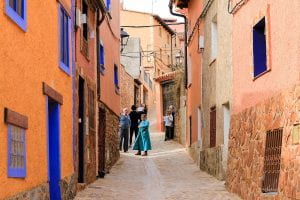
Karen: Mostly using Ancestry.com. Am extremely fortunate that several elderly relatives are still living and have shared memories. Other records that have been useful: NZ Archives, British Archives/newspapers, Trove.
Jennifer: I’ve used Census, Newspapers, local area history books, published family histories, blogs, shipping lists, inquests, Wills and personal letters
Pauleen: Missing persons advertisements in the newspapers (on Trove) can provide clues to family linkages and latest known location – It’s how I linked up Mary O’Brien Kunkel with her sister Bridget later Widdup and the ship
Jill: One of my best finds was an obit in the California Digital Newspaper Collection. Put a bunch of FANs in place in four countries.
Tara: Reminds me of one death record I came across during recent search. Bachelor, death reported by his “Step son” (1880s)
Tara: You have wedding gift lists for FAN, we in Ireland have funeral attendees 🙂
CB: Recently came across some really great ones for a client’s ancestor BUT they described some of his step-kids as actual children, which I didn’t know at the time, meant I had to do further ultimately pointless checking!
ANZ: Kind of nice they were recognised that way within the family but also annoying genealogically.
CB: It is. Good lesson not to blindly believe the report though. This man had been married 4 times so the possibility of unfound children was not, er, impossible.
Jill: Facebook stalking is a great tool for identifying FANs in later generations.
Tara: One thing I have noticed tracing FAN for weddings and christenings in Irish midlands is that they were often first cousins rather than siblings. Testing that hypothesis has often worked
Sue: When researching English, American or Canadian then go to census definitely. In Australia, Trove as well as online records from Tassie.
ANZ: Researching FANs and extended kin has clarified oral history hints by buying certificates. Witnesses to church events reveal long-term friendships and occupational or voyage links.
Jennifer: That’s so true. I found a grooms brother on the marriage certificate. Had thought he was still in Scotland until then
Jill: We also have fantastic funeral reports via @TroveAustralia especially for earlier years.
Tara: Yes, it was through one of those for a great grand uncle that I was able to reconstruct his life after emigration to Australia
Sue: In Tasmania, we are so lucky to have an archives that has digitized so much and put it online for free. Anyone needs help using the Tasmanian Names Index, feel free to contact me. I love using it.
ANZ: Tracking down in-laws and cold-calling can be scary but give you stories and photos that you don’t have. Similarly, school friends may be able to identify people in photos.
Sue: I found a few more relatives by checking wills and who they left heirlooms with, cousins, aunts, nieces et
Jill: FANs names on documents and in newspaper articles can help put our ancestors in a time and place.
Maggie: Following extended family through baptism records in Scotland (where they appeared as sponsors/godparents for each other’s children) and in Ireland helped me identify the townland in Mayo they all left from in the 1850s. All I had before was a county.
Jane: Can’t stay tonight for #ANZAncestryTime sorry … The #BeyondKinMethodology is one way to record people connected to one other and family but not biologically or legally kin e.g., enslaved people, indentured labourers, servants etc. … beyondkin.org/a-method-to-do…
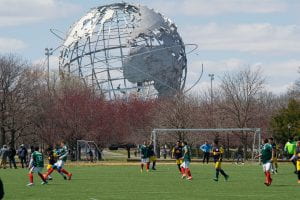
Immigration and FANs
Dara: Speaking of FANs – Mary Power was my Dad’s Dad’s Godmother. Then, census revealed she was his Ma’s foster mother. Transpired later, her first husband was my mother’s GGG-granduncle & finally, it turned out, she was Dad’s Grandda’s Aunt. A one-lady FAN club.
Jennifer: My ancestor was murdered in Victoria by her husband when her baby was a few days old and unnamed. I eventually found a child of same age & no birth cert living with an aunt in nsw after researching every known relative. Time consuming research but worth it
Pauleen: I’ve found it useful to analyse the gifts listed in wedding notices to distinguish who is a relative or a FAN and where they live.
Fran: So there is one FAN thing I have done when I thought I had done none. Check out wedding parties and social events in @PapersPastNZ can be useful.
ANZ: Researching emigrants from the home place has given me context for my own families/immigrants, and revealed dodgy deals done by the local priest in Clare. The extent of migration from Broadford to Oz had been lost over time in Clare.
ANZ: My GG Gfather was my brick wall. They lived in Tasmania but I eventually found him giving evidence at his son’s inquest in Victoria
Sophie: FANs = super useful in #genealogy research! “No man is an island”: when one can’t ID an individual in records, often the FAN network isn’t far away. Also very handy for IDing long-dist migration into cities where ppl oft settled near known friends/fam too
Pauleen: I made a great discovery by following up the court case of another Dorfprozelten emigrant, Carl Diflo. He mentions that my ancestor, a witness, was a pork butcher on the gold diggings and he knew George from “home”
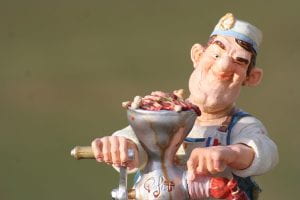
Jennifer: My ancestor was missing in 1851 census in Scotland. Found him in 1861 by tracing a neighbour. That neighbour had moved in 1861 and there was my ancestor living next door. Still don’t know where he was in 1851 but was happy to find him again
Maggie: It’s useful to follow the single or widowed relations as they can lead you to connected households – especially useful when you’re dealing with more common surnames. Having an extended family member pop up in a census return helps piece the puzzle together.
Tara: Also (certainly in Irish census records) pay attention to servants, boarders, lodgers, visitors. I’ve found orphaned cousins and widowed/widowered relatives classed as such
Maggie: I’ve seen quite a few family members turn up as visitors – took me a while to work out they were actually related. (thanks, fam)
Fran: Fans is a tool that I do not use much so hopefully tonight’s tweets will enlighten me with new research techniques
Karen: The 2 brothers (2nd gt g’father and brother) from Cornwall didn’t. One stayed in Sydney, the other – regional NSW. No widows (I think), but one female ancestor who was married to a convict was killed very young in a shocking horse and cart accident.
SOPS: Looking at immigration within the UK (that is, to my #OnePlaceStudy!) rather than across the globe, I have certainly noticed a number of cases where people who arrived in my Place were followed there by other members of their family.
Pauleen: Presumably they followed because there were good employment opportunities and/or a pleasant environment?
SOPS: A small village so relatively limited in the way of employment prospects, but sometimes you have to compare those prospects with the ones left behind! In one case I researched, the people concerned moved from another part of the county effectively ‘in recession’.
Pauleen: Irish women were a bit unusual in being willing to emigrate as young, single women. Not always the case with English girls and young women.
Jill: No FANs of my 10 convict ancestors appeared to follow them.
ANZ: How many families of convicts actually come out after them? Do you know if it was a significant percentage? (Or were most single when they were transported?) I’ve heard it happening, but just wondered how common it was! It must have been costly, and it would have necessitated some kind of correspondence… and how many were literate?
Paula: An aunt and her husband were transported in 1835. I’ve found birth records in Scotland for 3 children. 1 recorded on aunt’s ship. Anyone know what would’ve happened to child (infant) on arrival?
Sue: If sent to Tasmania check out the Queens Orphan school records orphanschool.org.au
Sue: in Tasmania, we have a book with families that came out after a convict, but majority of females got remarried out here even if they were already married in England.
Pauleen: I haven’t found single or widowed family members living with FANs, just family. However, for the Germans, having FANs living nearby must have been a wonderful thing to share language and past experiences.
Karen: My mat. 2nd gt g’father emigrated with his brother. His future partner was alone on the same ship. My mat. grt grandfather was still a baby when he arrived in Australia with his parents/siblings. Others alone/in a couple.
Sue: Have one brother, sister and father convicted together in 1847 in Donegal, Ireland, but can only find the female being transported. No idea where bruv and dad got to. From reading, apparently they stopped shipping male convicts from Ireland for the next few years, so maybe they did die in prison. Father in late 50s son only 14.
ANZ: I’ve found many widowed and single ancestors living with their children and family. In Scotland census the females were usually described as housekeeper
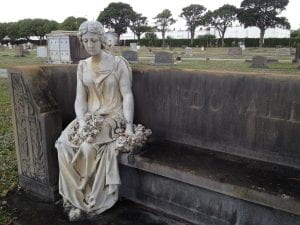
Pauleen: Looking at a map of the Fifteen Mile at Murphys Creek Qld I realised there were familiar names of Dorfprozelten people. When a couple married there were kin in neighbouring areas.
Tara: I don’t know about the family who emigrated to Australia/New Zealand. I’ve found it’s much easier to identify existing connections in US
Pauleen: That’s interesting Tara. Is it because they stayed in touch more, or did citizenship docs help? I was confidently told once that no one from the village went to Australia yet there was a mass exodus in the 1850s and 1860s.
Tara: Immigration records at Ellis Island identify a receiving person and their relationship to the immigrant. Also found grandfather travelled with a girl from far end of parish (NYC), possibly the reported girlfriend before my GM! Haven’t found equiv records for Aus NZ
Pauleen: That’s true about the receiving person. Our mid-19th century shipping lists do sometimes include that, and if you’re really lucky the ship’s disposal lists survive but not digitised. Immigration Deposit Journals tell who paid and who came.
Tara: I’ll have to dig into those. I know my great grand uncle sent his two daughters ahead of him and then he and his son followed within a year
ANZ: Spending the time to research FANS can open up new areas of research and/or find missing ancestors. They will often be found hanging out with FANS
Fran: In my UK & Wales census records my Dawson family often have other members of the family at least visiting on the census date. Not sure if these are longer stay though. This has been helpful in confirming family groupings, however.
Jennifer: I have found no evidence of family being sponsored by family or friends.
Pauleen: Maybe, like mine, they were so busy working to get along that they didn’t have spare cash.
ANZ: It took one of my ancestors a few years to pay for them to come out.
Pauleen: Was that from oral history or were there documents for it?
ANZ: Family story, and passenger listings, trying to piece it together. But possibly timing could have been related to family members back in England dying, so more able to travel after that
Sue: One ggggrandmother was 6 months pregnant on arrival and gave birth to my ancestor on the property where her husband was a servant (not convict). He came out with the wife and another daughter under three – eventually they had 6 children but I haven’t found his death anywhere, think might be goldrush time in Victoria where he went soon after last child born
Jennifer: I just remembered one family who came out with extended family – parents, children, grandmother and two aunts. They all travelled together
Pauleen: Some families did travel in clusters, but I’ve found others who came as singles but with Friends/Neighbours especially during the US Civil war when that was less appealing. I admire those elderly relatives who emigrated to stay with family.
ANZ: It’s amazing how many older folk travelled! Even lying about their age on the passenger lists.
Jennifer: It must have been a terrifying concept for older adults at the time
Pauleen: My immigrants must have been broke or selfish, as I can’t find them sponsoring others even where there was chain #migration. The Immigration Deposit Journals have examples where people sponsored their FANs. Pax lists and newspaper notices may also mention it
Dara: My GGG-grandfather, John Radcliffe, settled in Melbourne. He also had a brother and a cousin who emigrated there. The cousin, who was my GGG-Grandfather’s best man met with a tragic ending in an encounter with a train he didn’t hear coming. Trove gave all the gory details
Fran: We were always told that our GGF came with no relatives however through my research I have found a sister and brother that also migrated to NZ. This shows there is a need to be careful as using FANs may have helped my research.
ANZ: Yes! I’ve found some siblings got “lost” or ostracised over time, especially if they married outside the faith. Quite sad when you think about it.
Pauleen: Very true – family fractures did occur, it wasn’t all sweetness and light. I have one branch that shows evidence of being dysfunctional over generation
Paula: My gg grandmother left Scotland for Australia in 1888 with her husband and their children. (not my g grandfather). I’d love to know why they chose Australia and if there were connections there.
Maggie: Lots of chain migration in our family, most prevalent amongst my Kerry ancestors. And they tended to settle in the same area, and build a community there. There’s a good reason there’s a place called Kerrytown in South Canterbury, NZ!
Sue: My great great grandmother arrived in 1855 with her mother, then in 1856, mum sponsored another daughter, husband and in laws
Jill: Yes in the 1830-40s some of my Ryans from Westmeath emigrated with siblings and then others followed them out. In the 1860-70s my Kealys from Kilkenny did the same thing

DNA and FANs
Tara: Solved a 39cM DNA match because I’d paid attention to witnesses/sponsors. Established relationship between two families, again paying attention to who was present. Not a brick wall, just a thick hedge!
Maggie: I’ve found unknown siblings of my ancestors thanks to DNA matches with their descendants – great to add to the tree!
Pauleen: Over the years I’ve made quite a few discoveries by searching laterally to FANs including extended kin, oral histories, and photos. Distant cousins have also been confirmed through the DNA of known FANs/extended kin
Sue: definitely need to follow siblings etc if using for DNA. Found where in Devon my great great grandfather was born due to his siblings ancestor testing DNA
Jill: Following the Family lines down the generations is essential in #DNA Research if one wants to identify matches
Blog posts
Helen: Using witnesses on documents,
Jennifer: Family immigrating, missing gggrandfather found,
Sue: My unknown Grandfather and DNA
Readers: How has looking at FANs helped with your family history research?
